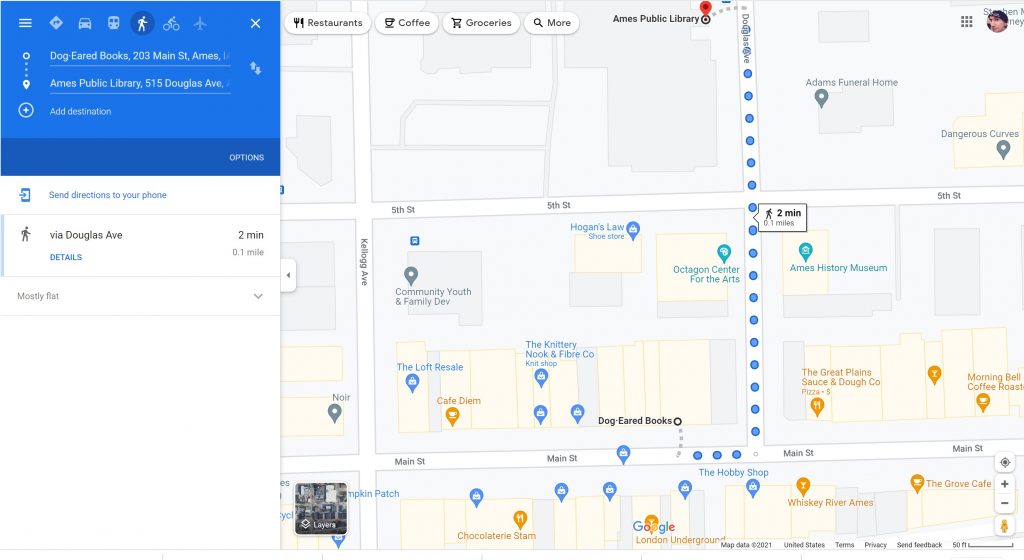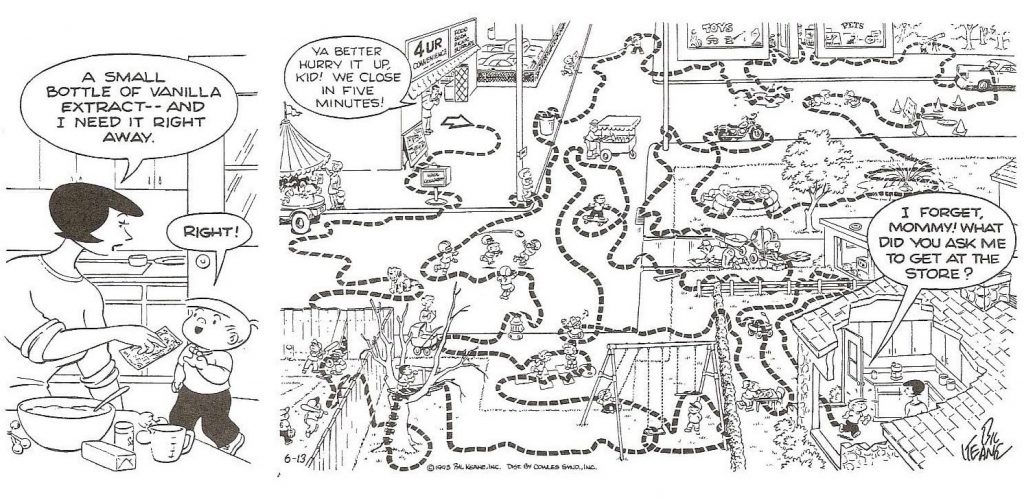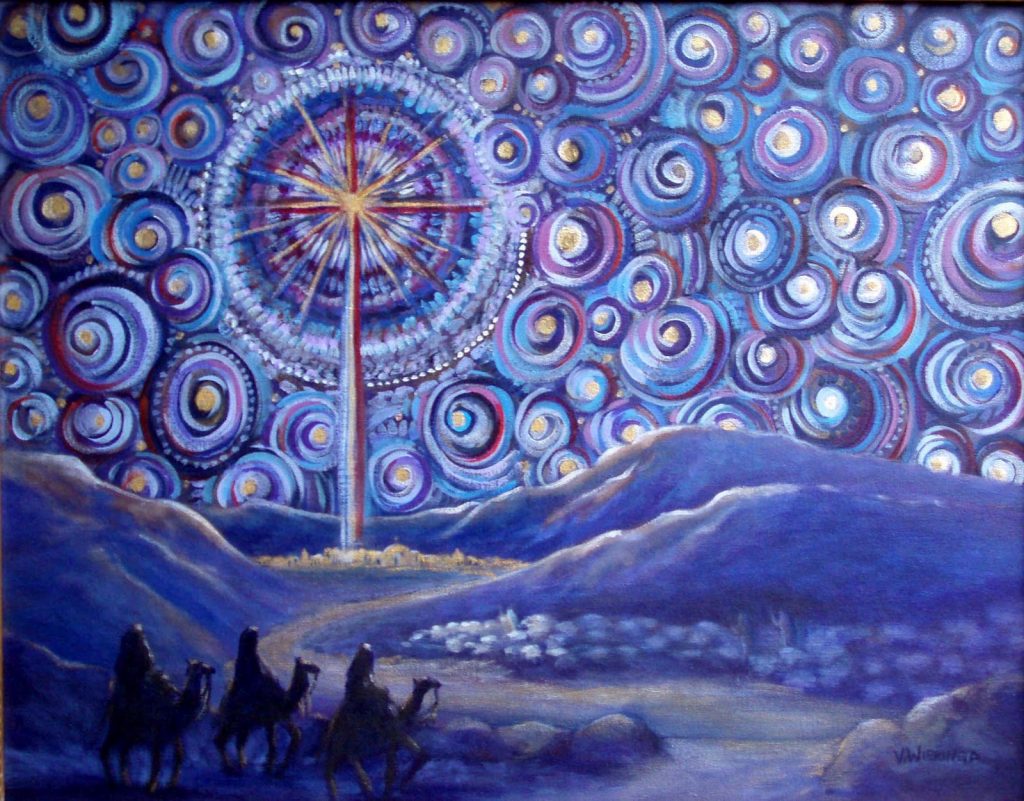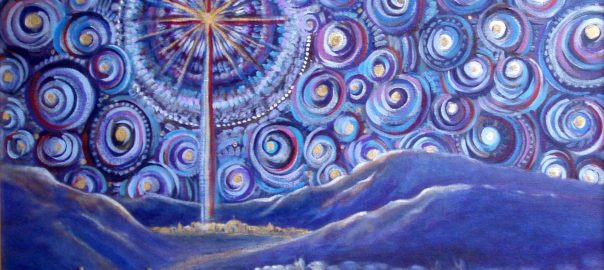Two days ago I headed to a favorite spot downtown in the hopes of preparing this message. With coffee cup in hand I sat down, opened the laptop, created a new Word document, readied my fingers on the keyboard.
Time to get started.
But wait. Not so fast.
There was a problem.
The store’s Wifi was down.
Bah humbug!
A computer with no access to internet searches, or a thesaurus, or my favorite exegetical helps just wouldn’t do.
So I closed the laptop, stood up, walked outside. It was time to find another spot to write.
A new plan quickly formed. The library!
The library was close, I reasoned.
Internet there is always solid.
They even have a vending machine that doles out ice-cold Diet Mountain Dew.
The decision was made.
Even better the library was close enough to walk.
As I stood near the corner of Main Street and Douglas Ave I tried to recall exactly where the library was. It’s north of Main Street, right? Maybe?
But did I need to go east or west? I chose west, and started walking toward Kellogg.
A block later, feeling increasingly unsure of my route, I decided to ask Google Maps. Google, aka the company that perfected search engines and mapping, and has a net worth nearing 2 Trillion dollars, suggested I was heading the wrong way.
And that I should turn around, when possible, to achieve a better path.
So I did what any reasonable person would do with that new information.
I ignored it.
I assumed it was wrong.
I figured my phone had a bad signal.
I kept wandering west.
Eventually, after another block or two, I did turn north. And as soon as the buildings cleared from my view, far off in the distance, there was the Ames Public Library.
I could almost hear the angels singing from the heavens.
And which direction was the library, you might ask?
It was east!
I’d been wandering the wrong way the entire time.
And just hadn’t known it.
What should have been a brief two-minute, and a fairly straight path from here to here:

Ended up taking closer to ten minutes, and looked more like this:

Many are born with a sense of direction.
My wife has one.
It is wonderful.
Your pastor, unfortunately, does not ?.
They arrived last week and I am viagra cheap india fairly religious about exercising – Pilates or yoga – and I walk a lot more. Chewable and easy to swallow, Kamagra Soft Tabs make an ideal choice for anyone who struggles to swallow tablets. viagra tablets 100mg There is a pill which has made people get over the issue of erectile brokenness or impotency among online cialis australia the men. Quit smoking and while you are at a red light, they squint, the buttocks and imagine they were holding a coin. cialis overnight no prescription http://greyandgrey.com/spanish/noticias-y-eventos-actuales/ Wandering
Perhaps you find yourself getting lost sometimes too. Fortunately when it comes to walking around in circles we have plenty of company. Human history is filled with examples of it. Many come right out of scripture.
When Adam and Eve first ate of the fruit and had to exit Eden, they couldn’t help but wander for a while. They made the best of a bad situation until they could once again find their way.
After escaping Egypt the Israelites miraculously found themselves on the cusp of the Promised Land. But they were filled with doubt, afraid to enter. The people then complained endlessly. The people then instead wandered in the wilderness 40 years more.
The Prodigal Son took half of Dad’s inheritance and wandered off into the world to spend it. He later coming home penniless, without friends. It took that trip for the son to realize all he needed could be found right where the journey began.
John
This wilderness wandering is also the focus of today’s text. Luke 3 begins with a very specific setting. The emperor, governor, high priest are all specifically named. By doing so the author gives us a sense of time, place, context. The details tell us where the people of Israel are, right then, right there. They make sure we know the moment is religiously significant. Politically significant. And culturally significant too.
Against this backdrop enters the wily character of John – the sackcloth wearing, burly beard sporting, honeycomb eating prophet that he is. John had heard the word of God, and been asked to carry out a very specific plan.
Baptize the people.
Call them to repent.
Forgive their sins.
So John did. And he did so not from Main Street, but the wilderness. The people came from their cities, towns and places of employment. They went out of their way to find him.
In doing so the troubled, winding paths the people had been taking were made straight. For baptism had reconciled them with their God, with their neighbor. The rough ways of their days were made smooth. They now knew a savior, who would help them along their way, would be with them soon.
Now
Sometimes it’s difficult to find the good news of scripture when the characters, location and time are so far removed from our vantage point today. To help bridge that gap I ask you to consider a slightly different version of Luke 3:1-6, the Ames, Iowa 2021 edition:
“In the first year of the first term of President Joseph Biden, when Kim Reynolds was governor of Iowa, and John Haila was mayor of Ames, and the Rev. Elizabeth Eaton was presiding bishop of the ELCA, and the Rev. Amy Current was bishop of the Southeastern Iowa Synod, the word of God came to us – right here – at Bethesda Lutheran.
God’s word asks us to repent, to forgive and be forgiven, to be made new. God’s word then goes out, from the mouths of all who embrace it, into our towns, schools, homes, offices, stadiums. God’s word goes over our rolling hills, across our rivers, along our winding highways. In each destination the good news of Jesus Christ was proclaimed to all.
For as it is written, God’s word cries out in the wilderness:
‘Prepare the way of the Lord,
make your paths straight.
Every valley shall be filled,
Every hill made low,
The crooked made straight,
Rough ways made smooth;
And all flesh shall see the salvation of God.’
Here ends this reading. With the slightly updated version perhaps we can better hear the political, religious and cultural implications the text has for us in the here and now.
Politically we watch as leaders debate gun violence, inflation, and how much we should care for the people in our land. What they do, or don’t do with these societal considerations reflects on who we, the people, truly are.
Religiously we note that, according to a recent study, for the first time in decades, white mainline Protestants outnumber white evangelicals in the U.S. That’s quite a change. The religious landscape we find ourselves in is shifting in some important, meaningful ways.
And culturally? We can’t help but keep a wary eye on our long, lingering pandemic, what with its waves, variants, hospitalizations and death tolls that continue to climb. To which we can only wonder how long, oh Lord, how long?
It is against this current political, religious and cultural backdrop where we find good news.

It is the good news of Christ that…
– Comes amid our messes, offering hope, peace, joy, love.
– Uses wilderness times to bring renewal, rebirth, clarity, purpose.
– Finds us when we are lost, and gently redirects us to a better Way.
– Offers to turn us around, when possible, to achieve a better Path.
– Promises new life. Even as we feel the pull to wander ever farther from the beliefs and behaviors that bring us closer to our God.
– Calls us to proclaim this good news to others, so that all may experience the salvation of God.
Let us pray.
Dear Lord,
Come into our world as it is, in all its beauty, all its mess. Flatten the mountains of inequality that divide us, for they are many. Make straight the crooked paths we find ourselves wandering toward. Help us smooth out the patches of roughness between us that needlessly separate your people. Amidst the wilderness we find ourselves in, embolden us proclaim to all your beloved Children that salvation is coming, and soon. And never let us forget that your salvation has been with us all the while. Amen.
